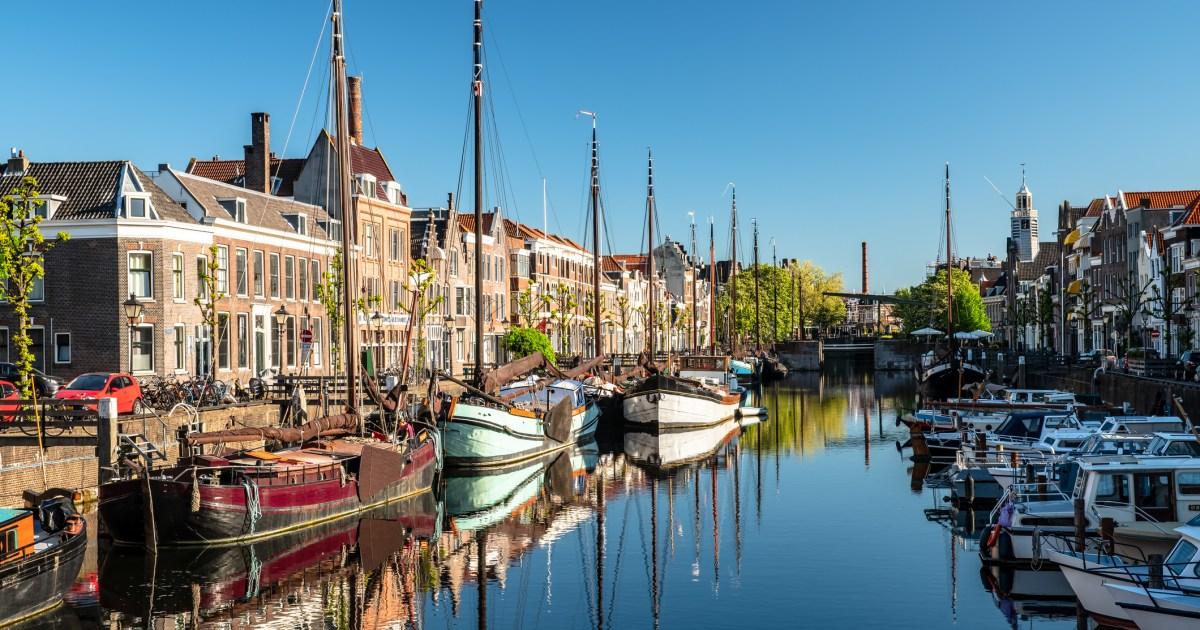Lifestyle
European Hyperloop Tests Achieve New Speed Record of 53mph

The Dutch startup, Hardt Hyperloop, has set a significant milestone in hyperloop technology by achieving a speed of 53 mph (85 kph) during a recent lane-switching test at the European Hyperloop Centre in Groningen, Netherlands. This achievement marks a step towards the ambitious goal of reaching speeds up to 700 kph (435 mph), a vision popularized by entrepreneur Elon Musk.
Hyperloop technology involves passenger pods traveling through near-vacuum tubes, allowing for speeds comparable to air travel. While various companies, including Virgin and SpaceX, have experimented with this innovative transport system, Hardt Hyperloop’s recent test positions it as a leading contender in this emerging field. The European Hyperloop Centre, operational since 2024, has conducted over 750 tests to date, reflecting the intense effort to commercialize hyperloop travel for both passengers and freight.
During the test, the vehicle successfully executed a lane switch, a critical feature for any future operational hyperloop system. “We are ready to go for higher speeds — up to 700 kph (435 mph) — as soon as the infrastructure allows,” stated Tim Houter, co-founder of Hardt Hyperloop. He noted that while the current testing tube length limits higher speeds due to safety concerns, the progress made in just a year is notable, given that previous tests on the same track reached only 30 kph.
While Hardt Hyperloop pushes forward, other countries are also exploring hyperloop technology. In China, the state-owned China Aerospace Science and Industry Corporation (CASIC) has reported that its hyperloop model, known as the T-flight, reached an impressive 387 mph on a 1.24-mile track. CASIC estimates that the T-flight could potentially achieve speeds of 600 mph, surpassing commercial airline speeds.
Despite these advancements, skepticism surrounds the hyperloop concept, particularly regarding safety. Concerns have been raised about the potential consequences of a depressurization event during travel, which could pose risks similar to a loss of cabin pressure in an aircraft. Additionally, while numerous tests have been conducted worldwide, only one hyperloop trial has successfully transported passengers, and that was at a maximum speed of just 100 mph.
The ongoing race to develop a functional hyperloop system also presents challenges in terms of collaboration among various technology providers. Jörg Marienhagen, Director of Consulting and Business Development at DB Engineering and Consulting, highlighted that efforts are often fragmented, with individual companies focusing on discrete aspects of the technology. This lack of collaboration has hindered progress on key issues such as vacuum maintenance, capsule propulsion, scalability, and economic viability.
For the time being, travelers in Europe will continue to rely on existing rail services like the Eurostar. However, competition is increasing. Startups like Nox, based in Berlin, are planning to introduce sleeper trains connecting various European cities at prices comparable to those of air travel. These trains aim to offer private cabins for one or two people, allowing passengers to travel overnight comfortably.
As the hyperloop concept evolves, the potential for rapid intercity travel remains a tantalizing prospect, but significant hurdles must be overcome before it can become a reality. The ambition to transform transportation through hyperloop technology continues to capture the imagination, even as practical implementation faces scrutiny and skepticism.
-

 Health3 months ago
Health3 months agoNeurologist Warns Excessive Use of Supplements Can Harm Brain
-

 Health3 months ago
Health3 months agoFiona Phillips’ Husband Shares Heartfelt Update on Her Alzheimer’s Journey
-

 Science1 month ago
Science1 month agoBrian Cox Addresses Claims of Alien Probe in 3I/ATLAS Discovery
-

 Science1 month ago
Science1 month agoNASA Investigates Unusual Comet 3I/ATLAS; New Findings Emerge
-

 Science1 month ago
Science1 month agoScientists Examine 3I/ATLAS: Alien Artifact or Cosmic Oddity?
-

 Science1 month ago
Science1 month agoNASA Investigates Speedy Object 3I/ATLAS, Sparking Speculation
-

 Entertainment5 months ago
Entertainment5 months agoKerry Katona Discusses Future Baby Plans and Brian McFadden’s Wedding
-

 Entertainment4 months ago
Entertainment4 months agoEmmerdale Faces Tension as Dylan and April’s Lives Hang in the Balance
-

 World3 months ago
World3 months agoCole Palmer’s Cryptic Message to Kobbie Mainoo Following Loan Talks
-

 Science1 month ago
Science1 month agoNASA Scientists Explore Origins of 3I/ATLAS, a Fast-Moving Visitor
-

 Entertainment2 months ago
Entertainment2 months agoLewis Cope Addresses Accusations of Dance Training Advantage
-

 Entertainment3 months ago
Entertainment3 months agoMajor Cast Changes at Coronation Street: Exits and Returns in 2025









